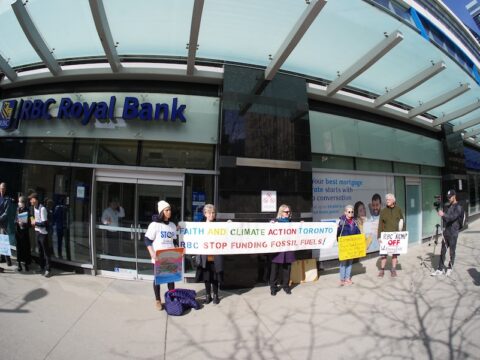Resting comfortably in his den in Omaha, Nebraska, watching the horrors of Hurricane Katrina play out on his TV, renowned investor Warren Buffett first decides to send relief supplies to NewOrleans before resolving to fix his broken country. In a mountain resort in Maui, he then gathers 16 billionaires and mega-millionaires, a gang of do-gooders that includes currency speculator George Soros and media mogul Ted Turner. Their mission: guaranteeing health care and living wages for all, helping to unionize Walmart and creating the People’s Chamber of Commerce. With such wealth and resources at their disposal, they see to it that America is, indeed, reborn.
That’s the wild-eyed premise of Only the Super-Rich Can Save Us!, a 700-page populist fantasy written by consumer activist Ralph Nader — what he describes as “a fictional vision that could become a new reality.” Four hundred of the world’s wealthiest people control more assets than the poorest three billion, Nader notes in the book. If these super-rich stopped wallowing in “leisurely drudgery,” they could change things for the better.
So can big business really save the planet? The track record of corporate capitalism is hardly squeaky clean. Think of Dow Chemical or R. J. Reynolds Tobacco. But observers like Nader argue big business contains the seeds of profound social change, too. After all, globalization has helped spread democracy, increased wealth and education levels, and diversified local economies, according to New York Times columnist Thomas Friedman, one of the pre-eminent voices on globalization. Claiming an interest in the welfare of society, some visionary CEOs are now instilling their companies with ethical principles and a spirit of altruism.
Corporate social responsibility, or CSR, is fast becoming a part of everyday business. It has led companies to reform their organizational practices, to give generously to good causes and to form partnerships with non-profit groups concerned with the environment and public welfare. Critics, however, argue that corporations aren’t actually seeking to better the planet; they’re merely trying to win the public’s trust with a multibillion-dollar public relations effort. CSR skeptics also wonder whether big businesses will still be big-hearted during tough economic times — and if they can ever be as efficient as NGOs and various levels of government.
Over the past two decades, CSR has blossomed as an idea, if not a practical program. Public outcry likely had something to do with it. When the media exposed sweatshop conditions at some of Nike’s Asian factories during the 1990s, concerned consumers boycotted the sportswear company. In 1995, Greenpeace protesters mobilized against Shell Oil after the company announced its plans to dispose of an old oil rig, the Brent Spar, by sinking it in the North Sea. Pharmaceutical companies, too, were forced to respond to the HIV/AIDS pandemic in Africa.
“Government, activists and the media have become adept at holding companies to account for the social consequences of their activities,” wrote CSR experts Michael Porter and Mark Kramer in the December 2006 Harvard Business Review. “As a result, CSR has emerged as an inescapable priority for business leaders in every country.”
When top executives begin to realize the impact of their choices on their surroundings, “the guilt is enormous,” according to Helen-Jane Nelson, director of Cecara Consulting Limited in the United Kingdom. As she told Enlighten-Next magazine in 2005, “We’re at a point where leaders are beginning to recognize that their businesses are not sustainable, that the whole way that they have been doing business — the pursuit of continual growth — is not sustainable. The planet cannot tolerate it.”
The epitome of corporate altruism is Bill Gates. The tech tycoon, who with an estimated US$53 billion ranked second in Forbes magazine’s 2010 list of the world’s richest people, certainly doesn’t resemble a spandex-suited superhero. In fact, he looks more like a mild-mannered, behind-the-desk alter ego. But Gates, the founder and former CEO of Microsoft, is one of the world’s biggest philanthropists. This past decade, the Bill and Melinda Gates Foundation set out to enhance healthcare and reduce extreme poverty globally. To date, the couple has given more than US$28 billion of their own money to the foundation. Together with investor Warren Buffett, they’ve also launched the Giving Pledge, asking hundreds of billionaire Americans to give away at least half of their wealth to charity during their lifetime or after their death. More than 30 U.S. billionaires, including Ted Turner, have since made the pledge.
At the 2008 World Economic Forum in Switzerland, Bill Gates advocated a “creative capitalism” in which big corporations integrate doing good into their way of doing business. He noted that “capitalism harnesses self-interest in helpful and sustainable ways, but only on behalf of those who can pay.” Creative capitalism would extend the benefits of a free-market system to the world’s poor.
One company that has taken up the CSR banner is Coca-Cola. Its production plants are working with civil society and governments to implement a source-water protection plan by 2013. In partnership with the World Wildlife Fund, Coca-Cola has also started promoting sustainable agricultural practices and the conservation of the world’s most important freshwater river basins.
Says WWF Canada president and CEO Gerald Butts, “Coke has an enormous footprint all over the world and not just within their own operations. But the decisions they make on relatively arcane subjects, like procurement policy, have a big impact on ecosystems all over the world. For example, they’re one of the world’s largest purchasers of sugar cane and citrus fruits, and if they decide that they’re only going to buy sugar and citrus fruits produced in a responsible way, it’s going to benefit nature greatly.”
The principal goal of WWF’s partnership with Coca-Cola, however, is helping the soft-drink company reduce its own water consumption and carbon emissions. “If you want to change the world for the better,” Butts says, “you’ve got to deal with the types of activities that have made it for the worse. And when organizations like Coca-Cola are willing to make really substantive changes in their operations in order to make that happen, I think it’s almost a moral responsibility to guide them along that process.”
In the future, Butts adds, the WWF will work with more companies willing to overhaul their practices. “These partnerships are really important because we’ve had a long history of people in business and the environmental movement shouting at each other across a high wall, and not much has been accomplished through that approach. It’s time to take a different one, even one that’s risky for our own brand.”
Coca-Cola remains under scrutiny from watchdog organizations that accuse it of paying lip service to good corporate citizenship. Considering it bills itself as a“hydration” company, Coca-Cola certainly has an“insatiable thirst for water,” says Amit Srivastava, co-ordinator of the India Resource Center, which supports movements against corporate globalization. According to the centre, Coca-Cola used an estimated 290 billion litres of water in 2006 — enough to meet the entire world’s drinking water needs for 10 days. But until recently, the company converted as much as two-thirds of the freshwater it used into waste water.
In India, where 70 percent of the population derives a living from the land, many rural communities do not have ready access to water due to the control of local water resources by Coca-Cola and other companies. “Such an abusive relationship with water is downright criminal,” Srivastava says. He dismisses Coca-Cola’s CSR initiatives as “a frantic effort to repair its increasingly blemished image.”
Corporate-caused disasters can also raise doubts about a company’s professed commitment to social responsibility. This past spring and summer, after a blast aboard the Deepwater Horizon rig, millions of litres of oil poured into the Gulf of Mexico, soiling nearly 200 kilometres of coastline and threatening some of the United States’ richest ecosystems. BP, formerly known as British Petroleum, was the principal developer of the oil field where the rig was operating.
Just a decade ago, BP began marketing itself as “Beyond Petroleum.” But it didn’t take long for the United States Occupational Safety and Health Administration to fine the oil giant US$21 million for safety violations leading to a March 2005 explosion at a Texas City refinery that killed 15 people and injured 170. The following year, a BP pipeline leaked nearly 900,000 litres of oil into Alaska’s Prudhoe Bay — the worst onshore oil spill in the state’s history. According to a congressional investigation, the spill was caused by negligence and cost-cutting. “BP is an amazing example of hypocrisy,” says Philip Mattera, director of the Corporate Research Project, a national resource centre in Washington, D.C., that promotes corporate and government accountability. “Here is a company that really prided itself on being socially responsible,” he observes, but the evidence now coming out reveals a “culture of recklessness” behind its operations.
While Mattera acknowledges some claims of social entrepreneurship may be sincere, he contends that many business leaders are only jumping on the CSR bandwagon to counter-act the increasing cynicism people have about large corporations. “When a company spends more on advertising its environmental friendliness than on environmental actions, that’s ‘greenwash,’ the phenomenon where corporations preserve and expand their markets by posing as friends of the Earth. It’s completely cosmetic,” he says.
As “philanthro-capitalism” continues to boom, critics warn that the whims of the free market can’t be allowed to displace a vibrant public sphere. Safeguarding the environment and improving public welfare are the distinct roles of NGOs and the public sector, Srivastava argues. While social movements have years of experience in these areas, multinationals are now moving in without knowing “the ABCs” of collective reform. You can’t buy social change, he says.
Srivastava continues, “Whether we’re talking about the Bill and Melinda Gates Foundation or Coca-Cola, they have this whole market approach to solving problems.” But the market’s mood is always changing. Private enterprises, he insists, won’t be present during economically depressed times or when they’re forced out of business altogether. For others, he says, CSR may be a “passing fancy.”
Businesses aren’t charities, observes Harvard professor Michael Porter. At the same time, he rejects the idea that corporate growth comes at the expense of social welfare, or vice versa. Business and society are “interdependent,” he argues, and a company’s social and business agendas should go hand in hand. In a May edition of Business Week, he encourages companies to take a strategic approach to CSR and change their practices “in ways that enhance competitiveness while simultaneously advancing economic and social conditions in the communities” where they operate. By forging mutually beneficial relationships at the local level, big business will regain its legitimacy and “give purpose to capitalism.”
In Nader’s Only the Super-Rich Can Save Us!, do-gooder billionaire Warren Buffett isn’t on a messianic mission. But he and his fellow billionaires awaken to their responsibility to help build “a great and caring society.” Of course, whether business leaders can achieve in real life the sustainability Nader touts in fiction is another story.
***
This story first appeared in The United Church Observer’s September 2010 issue with the title “Can big business save the planet?”














